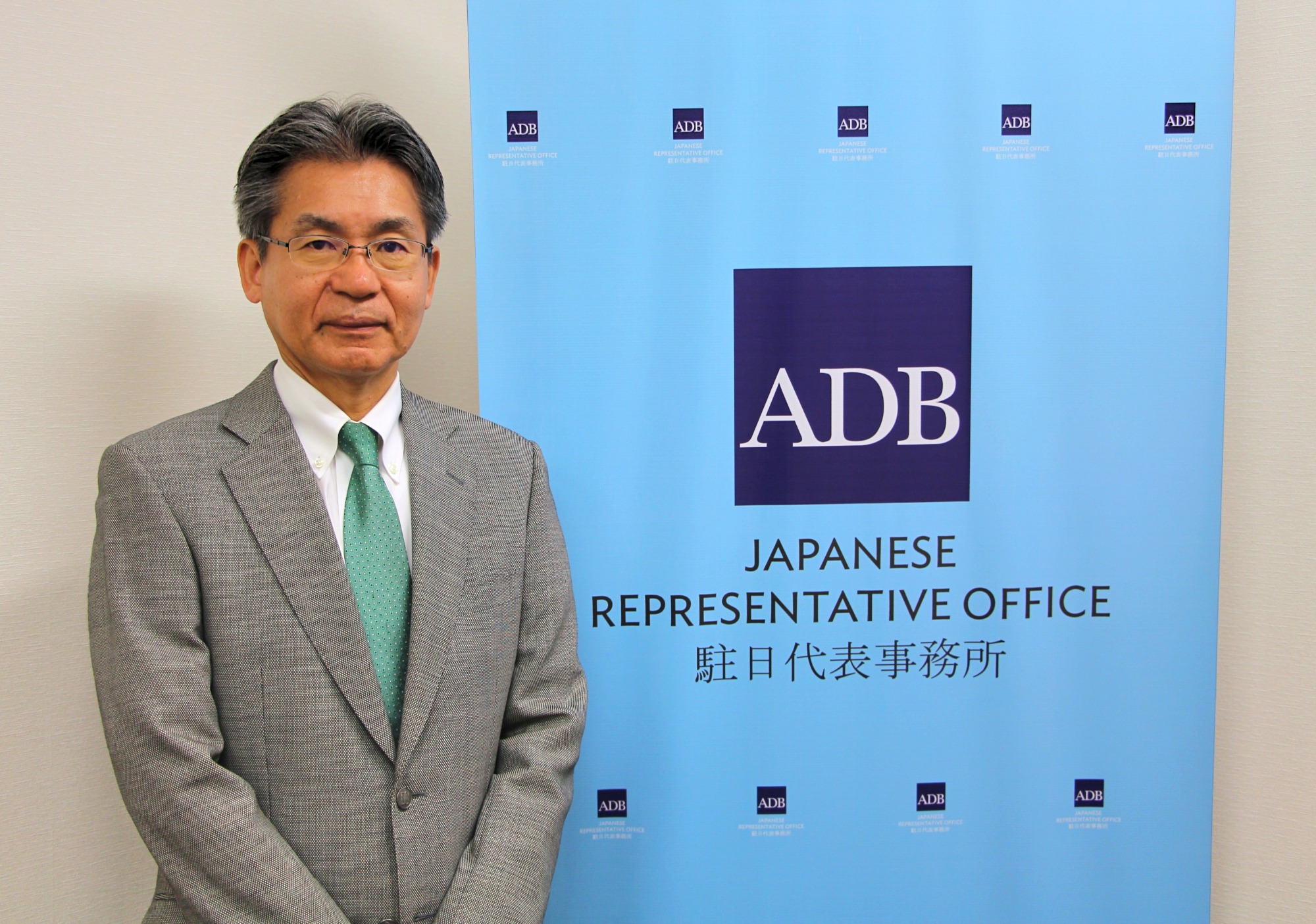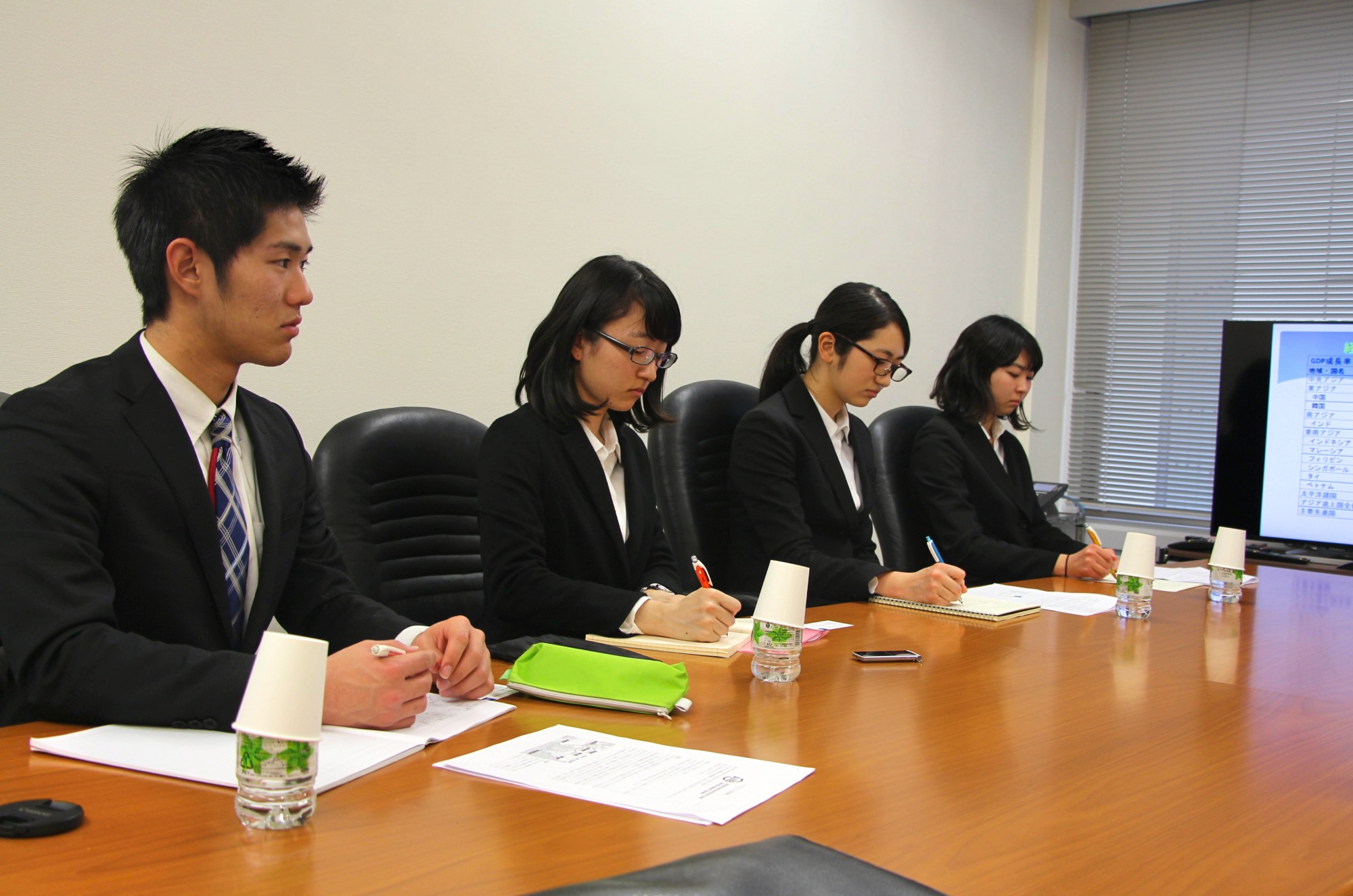Interview: Mr. Tomomi Tamaki, Representative, Japanese Representative Office, ADB

ADB plays a major role in supporting the progress of developing countries. ADB supports the efforts of resolving issues in the region such as the elimination of poverty, the strengthening of infrastructure, disaster prevention and response, as well as climate change and other environmental problems. Mr. Tamaki explained thoughtfully and thoroughly the economic situation in the Asia Pacific region, and the ways which Japan is contributing to ADB and summarized the role ADB plays in the area.
- The Ties between ADB and APIC
Through the interview with Mr. Tamaki, I was able to sense that both ADB and APIC are providing vital support to developing countries. At first glance, it may seem that ADB gives support based upon the cooperation and relationship between countries, but in fact it is much deeper. ADB puts a heavy emphasis on interpersonal relationships, with Mr. Tamaki commenting that “as a development bank and in order to contribute to these developing countries in a positive way, we look not only at the economic feasibility of each project, but also take into careful consideration the environmental and social impacts”. APIC has a similar function; because APIC has strong ties in the region, it is trusted by the countries in the area and thus it is able to undertake a variety of projects. The shared trust that both ADB and APIC have in the region is the reason that Japan is a trusted nation and is able to lend its technological and system support, and this is what I believe to be similar in both organizations.
- The Biggest Challenge Facing ADB: Poverty in the Region
Since its foundation, ADB has made the reduction of poverty its biggest and most important issue. Over the years, poverty has declined in the region with the help of inclusive growth strategies,and ADB is still supporting ways to reduce poverty even further. Mr. Tamaki said that “when approaching a large-scale problem such as poverty, there are a number of different angles from which to approach and solve. ADB looks at the installation of infrastructure and prevention of natural disasters among other aspects to see where they can keep eliminating causes of poverty”. This approach of looking at poverty as not merely a number or percentage, but as a population that is vulnerable to economic shocks, uncontrollable natural disasters and other elements made me realize that poverty is a problem that needs to be faced head-on with earnest. Mr. Tamaki also commented that “in order for these countries to keep progressing and developing with their own power, it’s of upmost importance to put on a firm basis so that the citizens will cooperate with each other”. This made me think about the idea that knowledge and technical assistance is more important and effective than assistance in the field of physical infrastructure development in this region, and the corresponding importance of “international cooperation”.

(From left: APIC intern Mr. Aoyagi, Ms. Matsukawa, Ms. Shinano, Ms. Watanabe)
(Written by Masaki Aoyagi, Saki Watanabe, Haruka Matsukawa, and Maya Shinano, interns)
WHAT'S NEW
- 2025.12.25 UPDATE
PROJECTS
"Barbados A Walk Through History Part 17"
- 2025.12.2 UPDATE
EVENTS
"Pacific & Caribbean Student Invitation Program 2025"
- 2025.10.30 UPDATE
EVENTS
"Support for the 2025 Japanese Speech Contest in Jamaica"
- 2025.10.30 UPDATE
EVENTS
"Invitation Program for the Director of Bilateral Relations of the Ministry of Foreign Affairs and Trade of Jamaica"
- 2025.10.16 UPDATE
EVENTS
"421st Lecture Meeting Regarding Global Issues"
- 2025.9.18 UPDATE
EVENTS
"420th Lecture Meeting Regarding Global Issues"
- 2025.8.28 UPDATE
PROJECTS
"Barbados A Walk Through History Part 16"
- 2025.7.17 UPDATE
EVENTS
"419th Lecture Meeting Regarding Global Issues"
- 2025.6.19 UPDATE
EVENTS
"418th Lecture Meeting Regarding Global Issues"
- 2025.5.15 UPDATE
EVENTS
"417th Lecture Meeting Regarding Global Issues"




